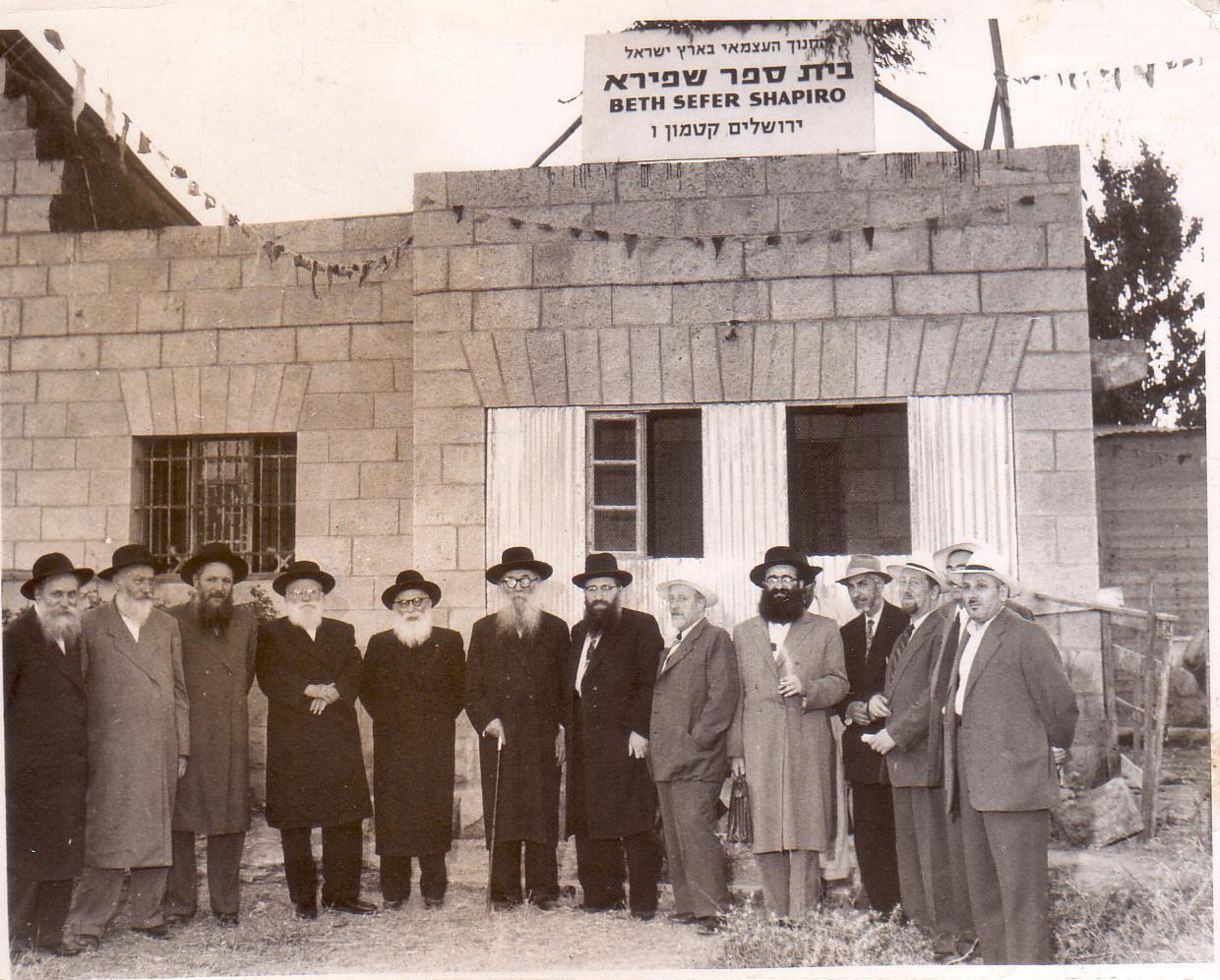The Rebbetzin travels alone
The end of summer zman 5701/1941
The ship set sail to the United States.
The young Rebbetzin, wife of Maran Hagaon HaRav Baruch Sorotzkin zt”l, stands on the deck. She’s the first one to leave the Japanese labyrinth.
She doesn’t leave with a light heart.
Because she was born in Kharkov, which was then under Russian rule, she received a visa before the others. Her husband, brother and cousin, who had all arrived together with her in Japan, were Polish-born, and the wait for a visa under the Polish quota was longer than for the Russian quota.
How much longer was the wait for Polish visas? Their visas arrived only two days after a change was made to American immigration laws; but the change made their efforts futile, the change turned their tickets to success into worthless pieces of paper.
At first, they thought that Rebbetzin Rochel should wait until the entire group could travel together. But then, Rav Baruch was posed stressful questions. Every time he tried getting a visa to immigrate to the United States, he was asked by the American consul in Yokohama about the whereabouts of his father-in-law, Rav Avraham Yitzchak Bloch.
The answer to this question was liable to complicate him — and his wife, who already had her visa. If Rav Baruch would say the truth, that his father-in-law was in Lithuania, it would mean that he was married to the daughter of a citizen of an enemy country. Every time they were asked the question, they skewed the truth. They said that Rav Bloch was in Eretz Yisrael. But this was a fact that the consul could verify… Rav Baruch and the Rebbetzin turned to the elder talmidei chachamim who had traveled with the yeshivah students and they rendered their decision: The Rebbetzin should travel on her own.
But then, when she was already on board the boat to freedom, the ship turned back to Japan. And then turned again…and back again. The back and forth accentuated the young Rebbetzin’s pain. She was leaving her new husband behind. She sat and davened, asking Hashem to help her reach her destination safely and that her husband would soon follow her.
“We are young and must follow the voice of those older than us,” she scribbled a few words about this brave step. “They are definitely right. We must overcome our emotions and listen to their advice. This is Hashem’s will.”
The ship set out a few times, turned back, and then finally sailed forth. Thousands of kilometers later, the passengers saw the first American shore on the horizon. Honolulu, the capital of Hawaii.
The ship lowered its anchor.
“Here we are,” the crewmen said with satisfaction. “This is the first stop. Next stop will be San Francisco, California.”
Hawaiian Soil
The Rebbetzin’s tefillos asking for siyata dishmaya bore fruit. Even though she knew that she was still far from her destination, when the ship kept on turning back to Japan, she sensed that she should get down onto dry land as soon as possible. She deboarded in Hawaii. Once safe on United States soil, she could try other means to reach the mainland.
Her decision proved critical.
“Even though they told us that we would reach San Francisco, we didn’t fully believe them,” the Rebbetzin wrote from Hawaii. “I did the right thing, because the ship continued on its journey and returned to China!!! Without bringing the passengers to their destination.”
The first letter from the United States reached the Sorotzkin home in Yerushalayim in the middle of Elul.
“I haven’t written in a long time, because I have been traveling for the past few weeks. I’m sure you know that I had to part from Baruch and that was very painful for me. I don’t have to tell you how hard that was. But I need to strengthen myself and trust in Hashem; He listens to my tefillos and will soon reunite us.”
She then relates that she met Jewish families who had never even heard of the Telshe yeshivah and its rabbanim. Though she had tried to turn down their offers of help, they took care of her wholeheartedly. “I was frequently able to see Hashem’s hand helping me.”
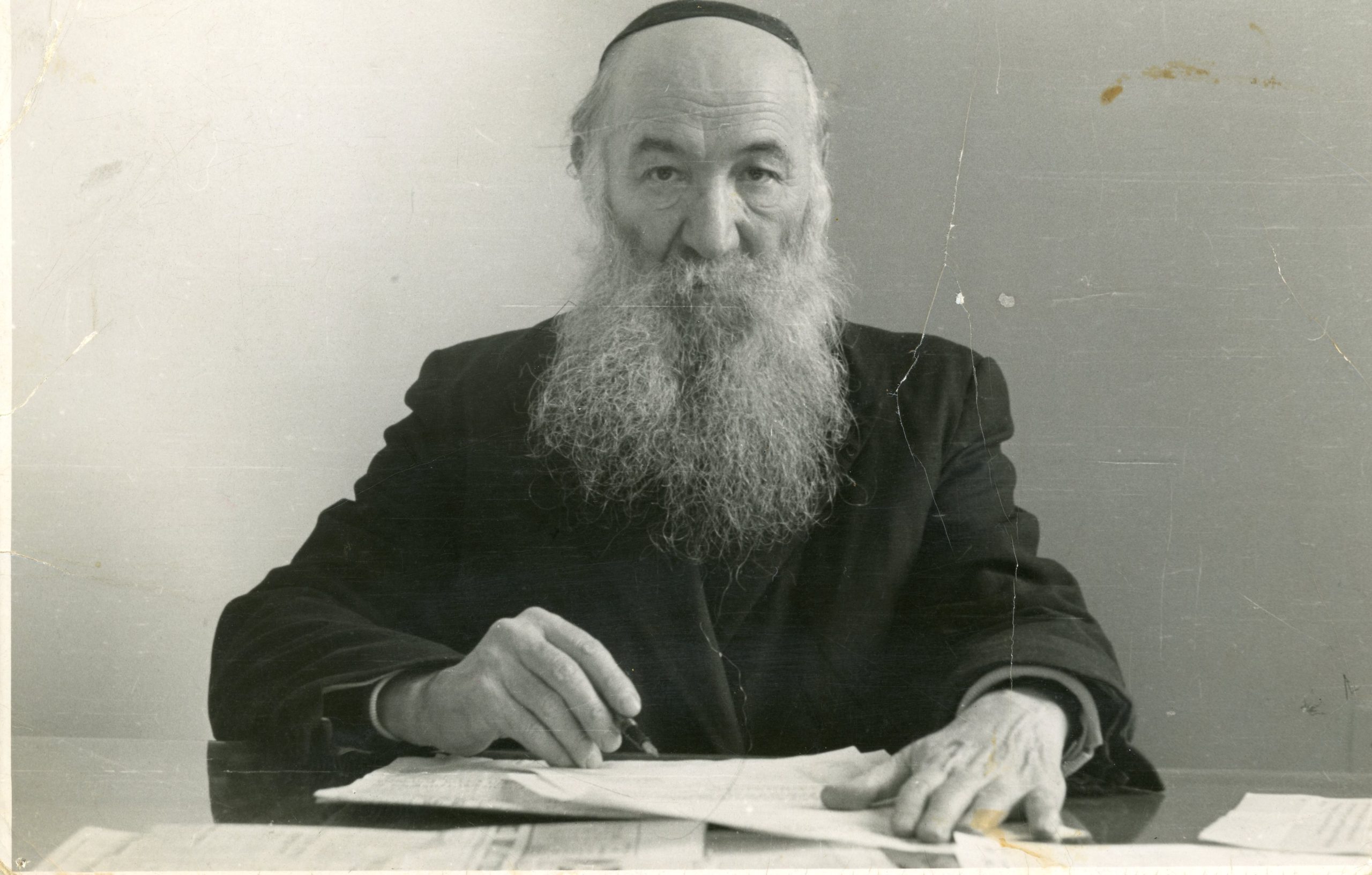
In Cleveland
In another letter, the Rebbetzin writes that from Hawaii, she traveled to Los Angeles, where she met Jews who were familiar with the Lithuanian Torah world and who she had more in common with. They helped her arrange the continuation of her travels, until she reached the home of Rav Mordechai Gifter, later the Rosh Yeshivah in Cleveland, and his wife Shoshana, her cousin, daughter of the mashgiach, Rav Zalman Shmuel Bloch zt”l. (In the margins of this letter, Rebbetzin Gifter sent warm regards from her husband to Rav Zalman Sorotzkin.)
“I am very happy and thank Hashem that we have a home here, which makes my situation much easier…I am teaching limudei kodesh and Hebrew in the girls school. But the separation is very difficult, and my eyes are raised to Hashem. I was updated that they traveled from Japan to Shanghai, perhaps it will be easier for them to leave from there.”
Change of Location
The Rebbetzin was already in the United States when Rav Baruch and his brother, Rav Eliezer, traveled with the group of yeshivah students from Japan to Shanghai, China.
The fact that the Rebbetzin had settled in America hastened Rav Baruch receipt of a visa. Soon her tefillos were fulfilled, and they set up their home not too far from the yeshivah in Cleveland.
On safer shores, Rav Baruch continued teaching and influencing those around him. His role that started with his shteigen in the beis medrash in Telshe, continued in Shanghai and now spread in the land of opportunity, Cleveland, United States.
The letters that he sent to Eretz Yisrael now contained more than just reports about how they were doing. He focused his energies on preserving Telshe, and prepared a list of seforim and tashmishei kedushah that he wished to receive from Eretz Yisrael.
Months passed and suddenly, without warning, they stopped receiving news from Lithuania and Poland.
**
In the midst of the sea of worry about his daughter-in-law and grandchildren in Lithuania and his daughter in Poland, Rav Zalman received good news from China. Rav Eliezer announced that he was engaged to Chasya, the daughter of his cousin, Rav Eliyahu Meir. On a blank flyleaf at the start of a volume of Rambam that he studied in China, he summarized important events. He added a line: “The day that I became engaged, mazal tov, Sunday night, Parshas Miketz, 1st of Chanukah, 25th of Kislev, 5702/1942, in Shanghai, China.”
A few months later, he wrote an additional entry: “Our wedding day, mazal tov, Sunday of Beha’aloscha, 15th of Sivan, 5702/1942, Shanghai, China.”
The letter that was sent from China to Yerushalayim, was first sent to the United States, to the family members in Cleveland, since the mail between Eretz Yisrael and the United States was more trustworthy than the China-Palestine route.
The uncle, Maran Rosh HaYeshivah HaGaon HaRav Eliyahu Meir Bloch, who was saved from the inferno because he had traveled to the United States on behalf of the yeshivah together with his brother-in-law, Rav Chaim Mordechai Katz, quickly sent his blessings to his new mechuten, Rav Zalman, who was also his uncle, along with a copy of the letter from Reb Eliezer and his kallah with the good news; finally something soothing in midst of their terrible pain. The original letter meant so much to him, that he couldn’t bear to send it further. Its convoluted journey meant that the letter only reached Eretz Yisrael a few months later.
“Dear Uncle Mechuten and Aunt,
“How happy we were to receive the long awaited letter from our dear children, Eliezer and Chasya… That very same day we also received the letter of our dear uncle and aunt with the mazal tov blessings, may Hashem fulfill the brachos and the great hope that we merit real soon to see our loved ones and the joy of our nation.”
Rav Baruch begins teaching Torah in Cleveland
He then discusses the yeshivah in the United States and the spirit that Rav Baruch brought along with him:
“Baruch Hashem, the yeshivah is progressing and moving along. Baruch toils in Torah and is very beneficial to the yeshivah students. May Hashem strengthen him so that he does great things for Torah and yirah, as befitting his lofty talents.” He ends the letter by repeating his brachos for nachas from the young couple.
At this point, at the start of winter zman 5703/1943, Rav Baruch was waiting for a letter from his parents, but since the letter was delayed, he took advantage of his uncle’s letter and wrote on the back page. “We have already started zman in the yeshivah and there is a lot of work because of the large number of students,” he emotionally discusses that which fills his mind and heart – the yeshivah.
He also asks, “Did you receive the Pri Etz Chaim?” an indicator of the yeshivah’s vitality. The Pri Etz Chaim was a booklet of chiddushei Torah published by the “Organization of talmidim in Yeshivas Telshe” in Lithuania. The anthology was now being published in the United States.
“Included here is a letter from dear Eliezer and Chasya sheyichyu. Even though the letters are from a long time ago, even so, baruch Hashem, their life is working out according to the situation and conditions, and we must thank Hashem. May Hashem give us the merit of receiving additional happy news from them. Has anything been heard from Elchonon shlita? Have you received letters from him? In your last letter, Father shlita wrote that he hasn’t received a letter from him a long time.” Rav Baruch doesn’t ask about their sister Tema or sister-in-law Shanya, who they had completely lost contact with, though they still hadn’t given up hope of hearing from them. He at least wants to know about his older brother. After the war, they would realize that the extreme sentence, exile to Siberia, was what saved Rav Elchonon’s life.
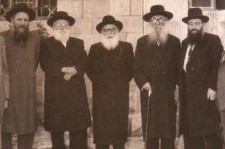
Rav Baruch rejects his father’s counsel
Between the lines, we pick up on a fascinating discussion. Rav Baruch responds to his father, Rav Zalman’s, suggestion that he head the yeshivah. He relates that though he is marbitz Torah and gives shiurim, he is not in a hurry to lead the yeshivah.
“I understand Father shlita’s advice, but we shouldn’t forget that I am only twenty-five years old, and there are bachurim who are older than me learning in the yeshivah, who also learned in Telshe. In addition, I’m only at the start…It won’t be too long before they will need new faces and strengths in the yeshivah, and then it will undoubtedly be my lot. Baruch Hashem, I am sitting and learning with a lot of hasmadah and am being mechadesh chiddushei Torah…Baruch Hashem, Rochele feels good…We long to receive a letter from you, possibly with some news about our dear ones, particularly Elchonon shlita.
Your son and brother who loves you so much and misses you so much and davens to Hashem to see you soon, together with all our loved ones.
Baruch”
In the margins, the Rebbetzin notes that they are busy the whole day long. She is busy teaching Jewish children and her husband is “busy the entire day” building the yeshivah.
Strange Notice from Moscow regarding the Death of their Grandfather
How was Rav Elchonon, Rav of Zholodek, faring in Siberia? It was him and no other who sent a painful letter regarding the…death of Maran HaGaon Rav Eliezer Gordon, Rosh Yeshivah of Telshe in Lublin that year.
A red postcard with the emblem of the Soviet Union was sent from Moscow with this piece of information.
But there wasn’t a single word on that postcard that matched reality.
Their grandfather, the great founder of the yeshivah, Maran HaGaon HaRav Eliezer Gordon zt”l had passed away decades earlier, in 1910, in London, during an arduous journey on behalf of Telshe, whose beis medrash had been consumed by a fire. Rav Elchonon was about three years old at the time.
Moreover, the telegram that was signed, “With love from Moscow, Elchonon Sorotzkin,” suggests that they relay this bitter news to their uncles Hertz and Juan, who could send a reply to Moscow.
There are no “Hertzes” or “Juans” in the Sorotzkin family.
What was that strange postcard trying to say?
Rav Elchonon was released a drop before the end of the five-year sentence that had been decreed by the Lithuanian military court, and he wanted to move to Eretz Yisrael. There was even a ‘certificate’ with his name on it. However, the Russians insisted that he show them a simple document before crossing the border: a Polish passport. This, of course, he didn’t have, and he couldn’t get one in those tumultuous times—definitely not on Russian territory. He could only hint and allude to his actions and efforts so that the sharp eyes of the Soviets and British in Eretz Yisrael wouldn’t understand his message.
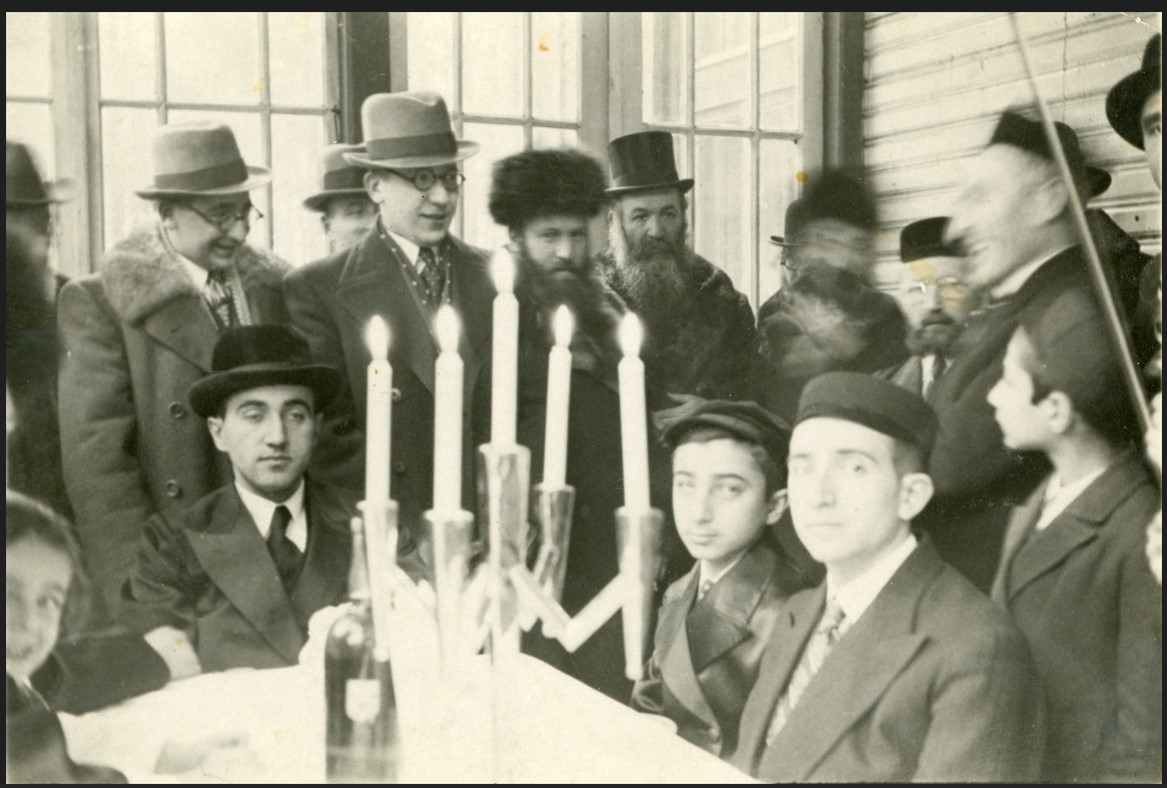
Revolution in Cleveland
A few years passed.
“Our daughter was born Mazal Tov, at 2:15 in the afternoon, in the Country Hospital….” The letter with news from Japan was sent from the United States.
In this letter, in addition to sifrei kodesh, Rav Baruch asks for tefillin for the chachmei yeshivah: “The most mehudar possible…with all the hiddurim, and the parshios should be written by a sofer with a lot of yiras Shamayim…” There was one thing he was willing to forgo. In the United States they knew that travel was dangerous in Yerushalayim, “so we do not specifically need a sofer who was toivel before each and every Shem Hashem. But our uncles are very stringent about his yiras Shamayim and tzidkus.”
It seems that the yeshivah was revolutionizing the city. It generated the opening of other institutions for the Jewish residents of the city, “Who are extremely grateful to the yeshivah.”
The Rebbetzin wrote a story about a five-year-old child to describes the spiritual growth that the yeshivah sprouted. “A little boy was in a store and was asked what school he attends. He pulled out the tzitzis he was wearing, showed them to the shopkeeper, and said ‘this school.’ The families appreciate the difference between their children and the children who attend other schools, and thank Hashem for His great compassion.”
We haven’t yet received a response from Telshe
Only then, after the noises of war quieted down and the enemy was defeated, did they start to hear about what happened.
Holocaust.
During all those years, Rebbetzin Sarah Miriam, Rav Zalman’s wife, did not participate in any simchos. How could she rejoice when her daughter, daughter-in-law and grandchildren were suffering?
Rav Baruch sent an update from the United States regarding the sets of Rambam that arrived and filled his heart with happiness, on the increasing number of talmidim, and about their oldest son: “Binyaminke has already started to say brachos and Modeh Ani, he is already 21 months old.” But at the end of the letter, he can no longer resist and asks the piercing question: “As of now, we have no information from Telshe. We sent money, but haven’t received a response.” He still had no idea that there wasn’t anyone in Telshe to receive his letters.
“We are waiting for information from our dear ones,” Rebbetzin Rochel added. ” We hope to receive joyful news…”
Later, her sister Rebbetzin Chaya (Ausband) would tell over what happened during the last days when the talmidim and rabbanim were brought to the “labor” camp near Telshe. What happened on that terrible morning of the 20th of Tammuz.
Slowly but surely, they would come to grips with the enormity of what had happened. There was no good news to be had. Holy communities had been slaughtered, wiped out. Rebbetzin Shayna, Rav Elchonon’s wife, was murdered in Novardok in Kislev 1942, along with her daughter Liba and son Bentzion, who had never seen his father, because he had been born shortly after he was imprisoned.
Tamar (Tema) and her baby Bentzion were sent to Treblinka in Cheshvan 1942 and were sent to the crematorium. Testimony received after the war described that after her husband Rav Yisrael Zajdenworm was shot by the Nazis in the Lodz ghetto, people suggested to Tema that she take advantage of the fact that she looked Aryan and escape the ghetto. However, she wasn’t willing to leave the Jews behind in the ghetto while pretending to be a Christian.
It was only in 1945 (!) that the yeshivah in the United States realized that they weren’t a branch of the yeshivah in Telshe, but the only place where the Torah of Telshe was still beating, other than the group of talmidim in Shanghai.
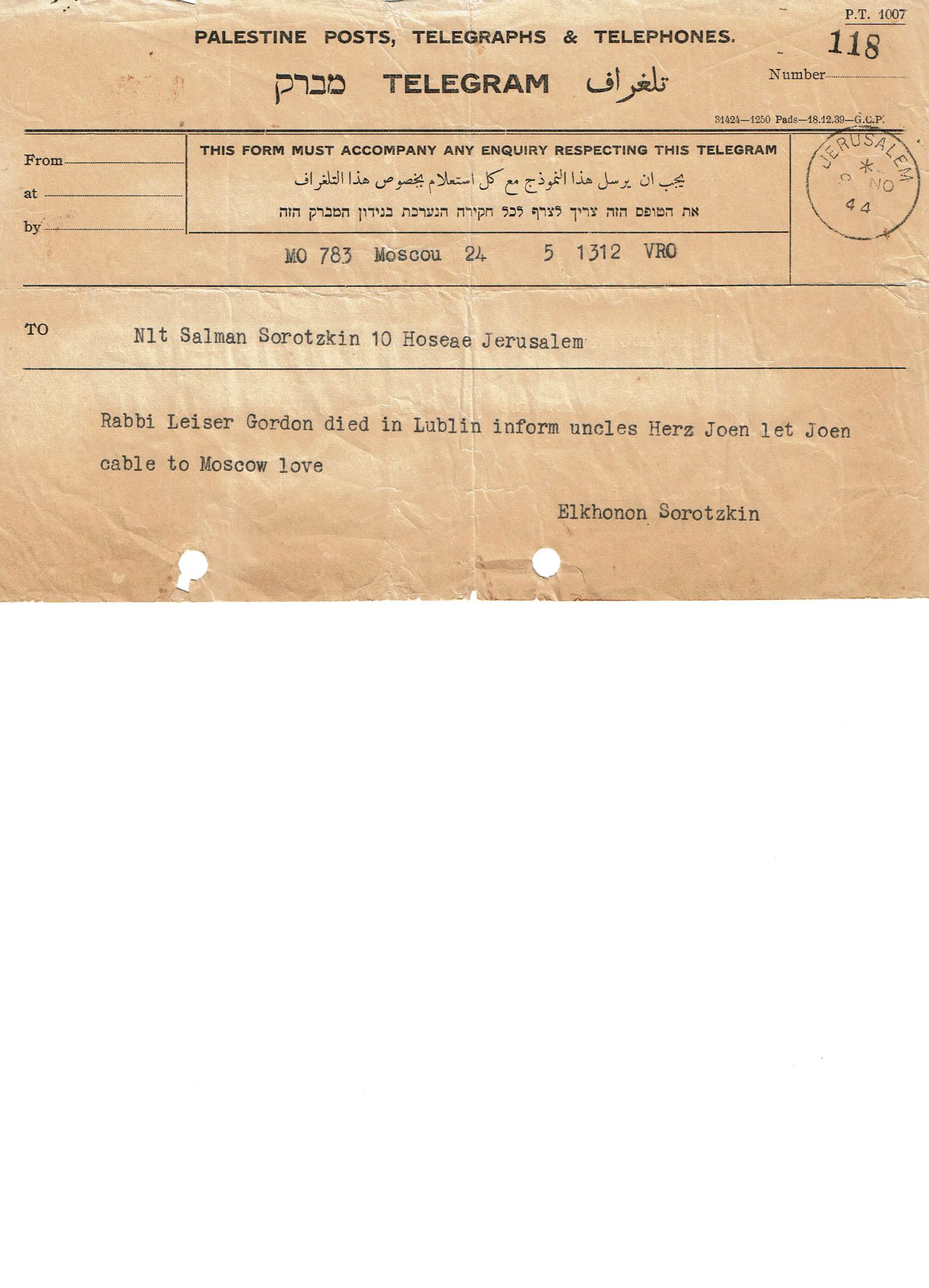
Terrible news and despair
Rav Eliyahu Meir was devastated. He received a letter from Eretz Yisrael with calamitous news. “The letter stirred within me a lot of suffering over our terrible calamity. Though there is a beam of light regarding the rumors that the wife of my brother-in-law… was saved with three of their children…I haven’t heard clear news about my wife and children, the information about her murder isn’t certain, and I am waiting for clearer news…and regarding my children, who I haven’t heard anything about. If you receive any information, please help my devastated soul and let me know what you hear.”
Despite everything, he was grasping onto a fragile scrap of hope. He heard that there was a “Rav Bloch” in the Landsberg refugee camp, and he hoped that perhaps someone had survived.
“Perhaps there is some information about the Rav Bloch in Landsberg. We still don’t know who this refers to, perhaps my brother Rav Avraham Yitzchak or my brother Rav Zalman. We send a telegraph to Switzerland regarding our brother who ended up in Landesberg.”
In Shanghai, they also needed emotional strength to cope with the bitter news.
“Our hearts are despondent, and we are waiting for words of encouragement and consolation from you,” Reb Eliezer wrote in a postcard that drips with pain. “Over here, we didn’t know anything about the terrible destruction and horror that happened to our pure, holy brothers who were moser nefesh al kiddush Hashem. Every day we are hit with thunderbolts, when we hear frightening, horrifying news, the likes of which hasn’t been heard since the day Hashem created the world.
“Our hearts are numb and can’t feel any more in the face of the destruction. Let us hope that these are the days of ikvisa d’meshicha and that we soon merit biyas go’el tzedek b’mheira biyamenu amen…”
Later, in the introduction to his sefer Aznayim L’Torah, their father, Rav Zalman, would write words of gratitude to the Creator for all the good He gave him. With chilling words, he engraved his love for the Creator who gave him the merit to be amongst those whose progeny were moser nefesh al kiddush Hashem. “I lovingly accept and thank Hashem that I also have a part in the blood that was spilled.”
“We can’t procure a Meiri Yevamos here in America.”
Despite all the difficulties, they could see Hashem’s powerful hand accompanying them.
“Today, I have good news,” Rav Baruch started the letter that he sent quickly to Eretz Yisrael. “Eliezer and Chasya and their families are already on American soil. They haven’t yet arrived in Cleveland, but their ship docked in San Franscico yesterday. They will stay there for two days, until they board the train to New York that will pass through Cleveland. They will iy”h arrive on Thursday.”
The Chinese sojourn finally came to an end.
“We spoke to them on the telephone,” he relates. “You can imagine how happy we were to speak to them. They feel good, baruch Hashem, and we have made many preparations for their arrival. We have a four-room apartment for them…and now we hope you will soon come to see us, because half of the family is already here.” Along with this good news, he gives an update regarding Rav Elchonon. After much effort, including the efforts of his father through the British consulate, he finally got out. Rav Elchonon also sent a letter of greetings to his many “uncles,” a list that included the askanim of Orthodox Jewry at the time.
In this letter, too, Rav Baruch didn’t forget to care for his talmidim. “During winter zman, the yeshivah will learn Maseches Yevamos, and here in America we can’t procure a Meiri on Maseches Yevamos.” Rav Baruch asks his younger brothers to buy a Meiri, an expensive sefer at the time.
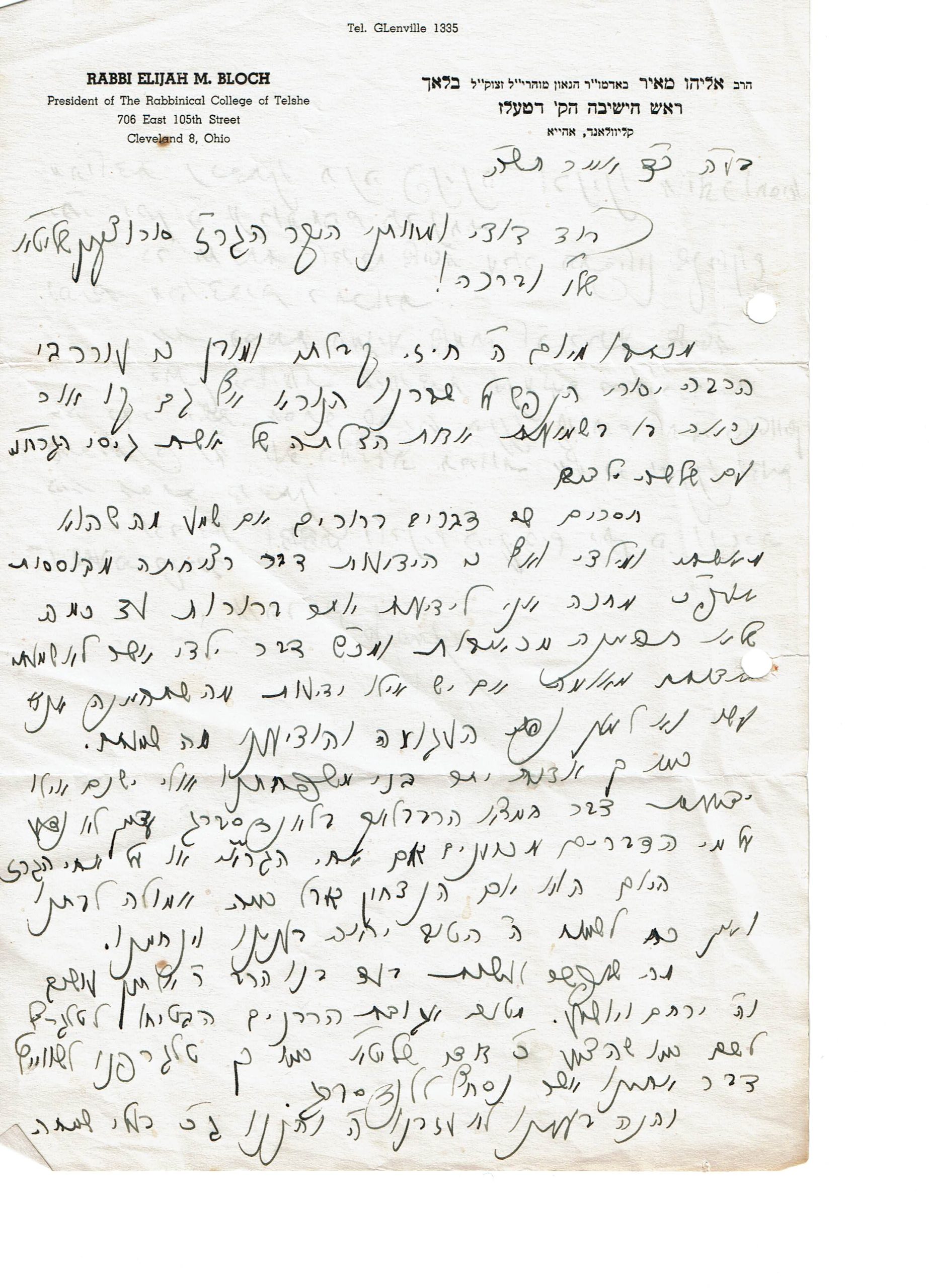
A world destroyed and rebuilt
Pained and despondent, they grasped onto Torah, onto another successful zman in the yeshivah. Another sugya in Yevamos to be learned in the Telshe beis medrash.
Upon his arrival in Poland, Rav Elchonon was greeted with respect and was appointed head of the Agudas Yisroel in the country. He didn’t need to write in hints anymore. Straightaway, he started working to procure aliya certificates for the yeshivah students. He was the one who sent good news. “You must have heard already that Naomi and Chaya Bloch, together with her chassan Rav Ausband have already left to Paris.” With these few words, he relayed the good news that Chaya, the daughter of the Rosh Yeshivah HaGon HaRav Avraham Yitzchak Bloch Hy”d had survived the war, along with her chassan, Rav Yitzchak Eizik Ausband. They ended up getting married in Paris.
The world of Torah was destroyed, but…a powerful new world emerged from the ashes.
“Can we not understand that the destruction only blemished “yimei shnoseinu” between the eternal past and the eternal future?” asked the Ponevezher Rav, who lost his entire family and yeshivah in Lithuania. “Nothing changed in the eternal neshamah and nothing blemished it, the same way that the hand of the enemy could not blemish the neshamah of the asarah harugei malchus. “Rabbi Akiva Omer…Rabbi Akiva says, in the present tense. Today and in the future…”
The eternal neshamah of Telshe lives on and perseveres. It beats throughout the world in the thousands of bachurim and avreichim who toil in Torah, the fruits of Telshe and its talmidim.
Perhaps, the words that most precisely define the Telshe spirit that overcame the terrible destruction are the noble words of HaGaon HaRav Eliyahu Meir, written with the blood of his heart on the day that he finally understood that there was no hope. The first thing he did was immerse himself in learning and wrote a few chiddushim:
“. לעבודת העם אני עומד ולשירות קדושיו אני נכון, כי מה נחשבת צרת הפרט לעומת חובת הכלל”.
“What I feared has happened. The terrible news that they died in the hands of those cursed German murderers, Hashem Yikom damam v’yachos al amo. Please don’t think me cruel that I am able to study the words of Torah after this horrible news…I felt that I have no strength for the future…without fulfilling the holy obligation that is upon us, the remnants, those that have survived, of being osek in Torah. My first role after hearing the tragic news is to learn Torah. I stand at the service of the nation; I am prepared to service its holy members. What is the misfortune of an individual in the face of the obligation to the community?
Yes, the task of rebuilding, of emerging from tragedy, was the obligation of those that survived, that was what ignited the Telshe torch and made sure that it glows still today, growing stronger and stronger…
Work of Torah!
Thanks to Bein Hadeah Vehaddibur and Rav Michoel Sorotzkin shlita for allowing us to use the letters and their history.
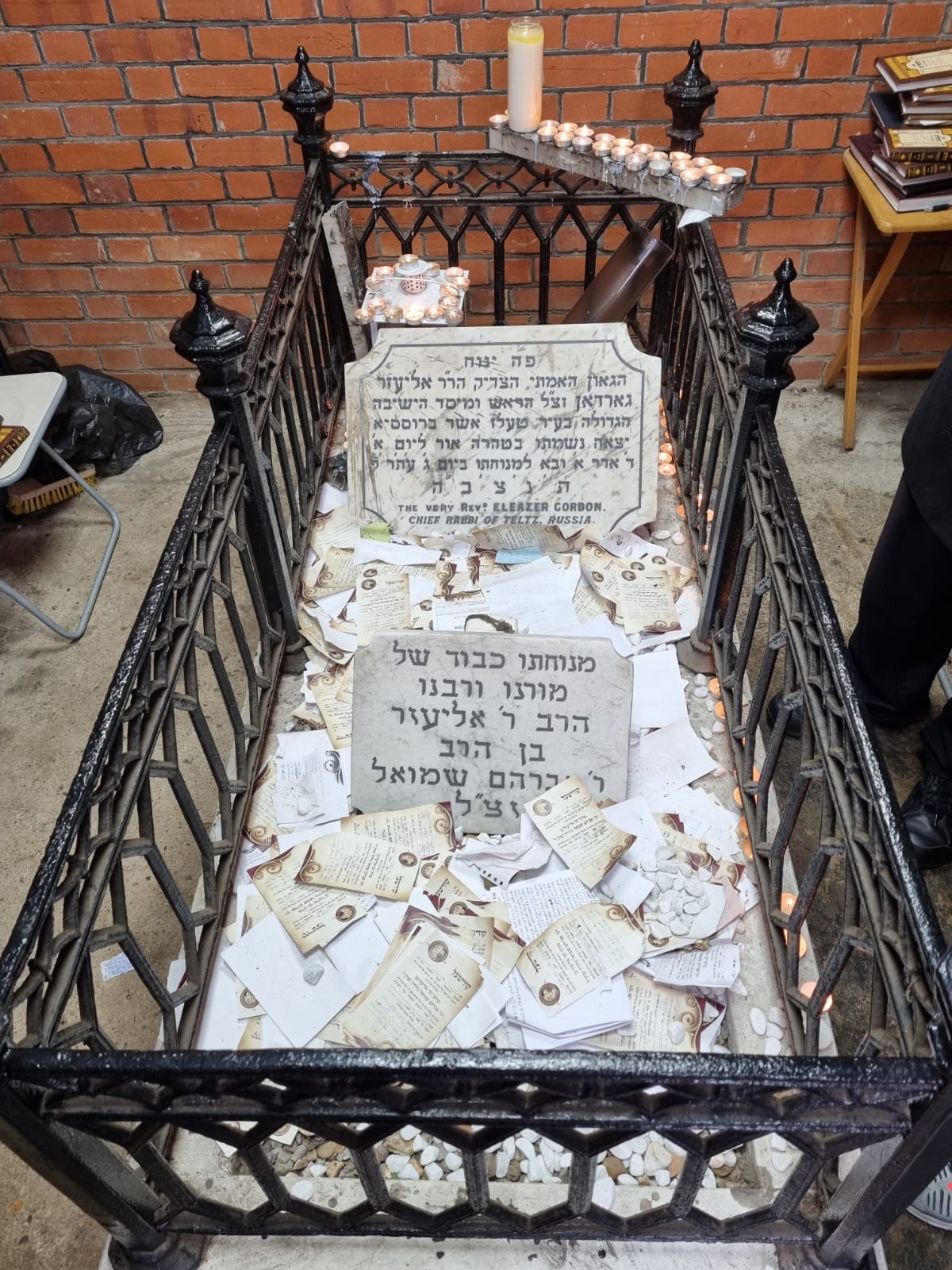
Overwhelming emotions
Many people at the time suffered with bureaucracy just like Rav Elchonon Sorotzkin, who was delayed in Moscow for a few years after he was released, only because he was missing an authentic document.
A few years earlier, the Polish government in exile cut back on the support they gave their displaced citizens. To continue receiving support, citizens were now required to present an authentic Polish passport, and not documents improvised during the war, like many people had.
Maran HaGaon Rav Eliezer Menachem Shach zt”l was one of the Polish citizens who received this stipend and it was this money that supported his family during their first period in Eretz Yisrael. “When they are distributing the support,” the Chazon Ish instructed him, “stand in line right behind the Lutzker Rav.” The Chazon Ish assumed that if they would refuse to give Rav Shach his stipend, Rav Zalman Sorotzkin would be there to stand up for him.
Rav Shach went up to Rav Zalman and told him the Chazon Ish’s instructions and asked permission to do what he was told. He didn’t know that usually Rebbetzin Miriam, Rav Zalman’s wife, waited on the line. Rav Zalman agreed and, that month, he was the one who went to wait on line to receive the stipend—with Rav Shach standing behind him.
“Where are your children?” The clerk asked.
Rav Zalman heard her words and started to cry.
“The question evoked all my pain for my children. The oldest was rotting in prison, my daughter was in Lodz and I had no idea what happened to her,” Rav Zalman would later tell over the story. “Two other sons were in China and only the two youngest were in yeshivos in Eretz Yisroel. I started to cry a river of tears in front of that clerk. She was shocked and felt so bad, that she apologized repeatedly for asking the question.”
She was so taken aback, that she didn’t dare ask questions or be strict with the next people on line, so the Chazon Ish’s advice proved to be very helpful.
